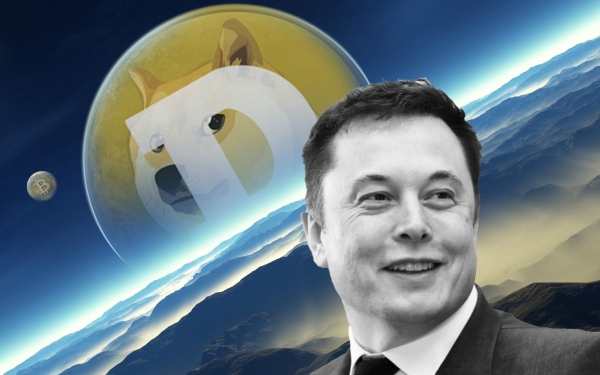The backers of Elon Musk’s favorite cryptocurrency, Dogecoin, announced that it will use Starlink for “offline” transactions. The Dogecoin Foundation published a blog post describing a protocol called RadioDoge, which will use radio frequencies and Starlink to enable Dogecoin transactions even when the user isn’t connected to the Internet.
The Dogecoin Foundation says RadioDoge can help remote communities that lack financial and Internet infrastructure and are often exploited by unscrupulous dealers. A report published by the World Bank indicates that the number of “unbanked” people dropped from 2.5 billion in 2014 to 1.7 billion in 2017. “Unbanked” individuals is even an issue in developed countries like the United States, which as the below video shows, even attracted some attention from U.S. politicians recently.
Unbanked people lack access to the mainstream financial system for a variety of reasons, including financial institutions’ reluctance to make loans to impoverished people or small- or mid-sized businesses in some areas. In some parts of the world, women are 9% less likely to have their own bank account than men are. KYC/AML regulations may also block some people from opening accounts if they lack appropriate identification.
The World Bank estimates that one billion people lack a way to establish their identities – likely adding to the problem of disadvantaged populations lacking access to financial services. People who lack proper identification cannot pass the KYC/AML checks required by financial regulations. Attempts to solve the problem include meeting with leaders in Africa, where it estimates that half of the people who lack proper identification reside.
However, most adults in the developed world – and even a significant percentage of adults in the developing world – have smart phones and could use a digital currency wallet if only they could connect to the Internet. Starlink’s Internet service is already capable of covering most of the world with its thousands of operational satellites.
The difficulty, however, is that many people who lack reliable access to high-speed Internet may not be able to afford the upfront fee for a Starlink kit and the $99 per month subscription fee. SpaceX has worked with some Native American communities, at least one school district, and the governments of Chile and Brazil to bring the Internet to remote or disadvantaged populations. However, it can only go so far, especially in countries where it may not even have a license to operate yet.
The Dogecoin Foundation aims to solve this problem by purely using Starlink’s raw capacity for radio communications. It’s already working on laying the software-related groundwork for projects like RadioDoge with Libdogecoin, which will provide a programming library for future Dogecoin-related projects.
Early tests of the groundwork for RadioDoge proved promising. They say that, if things go smoothly, they can start working on partnerships to roll out RadioDoge to remote or impoverished communities that have lacked access to the mainstream economy.
Longtime cryptocurrency supporters say that crypto in its pure form could help impoverished communities by “working around” the mainstream financial industry’s reluctance to invest in them and cumbersome regulations that make it difficult for them to access traditional financial services.
Migrant workers sending money across international borders to their families also face the prospect of high fees and slow transaction times when they use traditional remittance services like Western Union. Attempts to solve this problem includes El Salvador’s attempts to create a system in which El Salvadorean migrants in the United States can send money home more cheaply as part of its (admittedly flawed) rollout of bitcoin as legal tender. Private attempts to use crypto for cheaper remittances include Coco Pago, which created an app that migrants from majority Spanish speaking countries can use to send money home.
The Dogecoin Foundation is pushing to solve the technical issues involved in including the unbanked in the global economy, including creating a way to use radio frequencies to bounce Dogecoin transactions off Starlink satellites.






